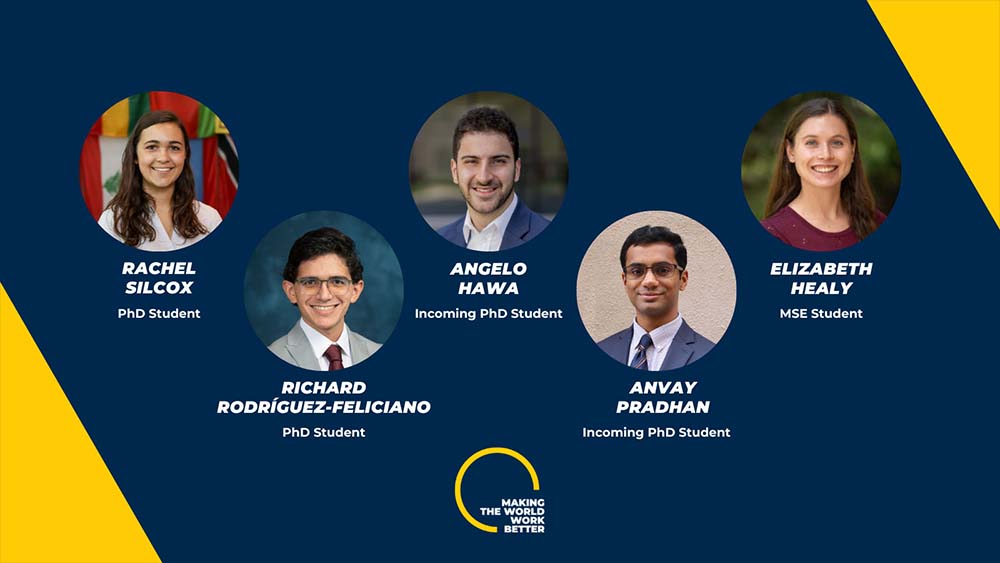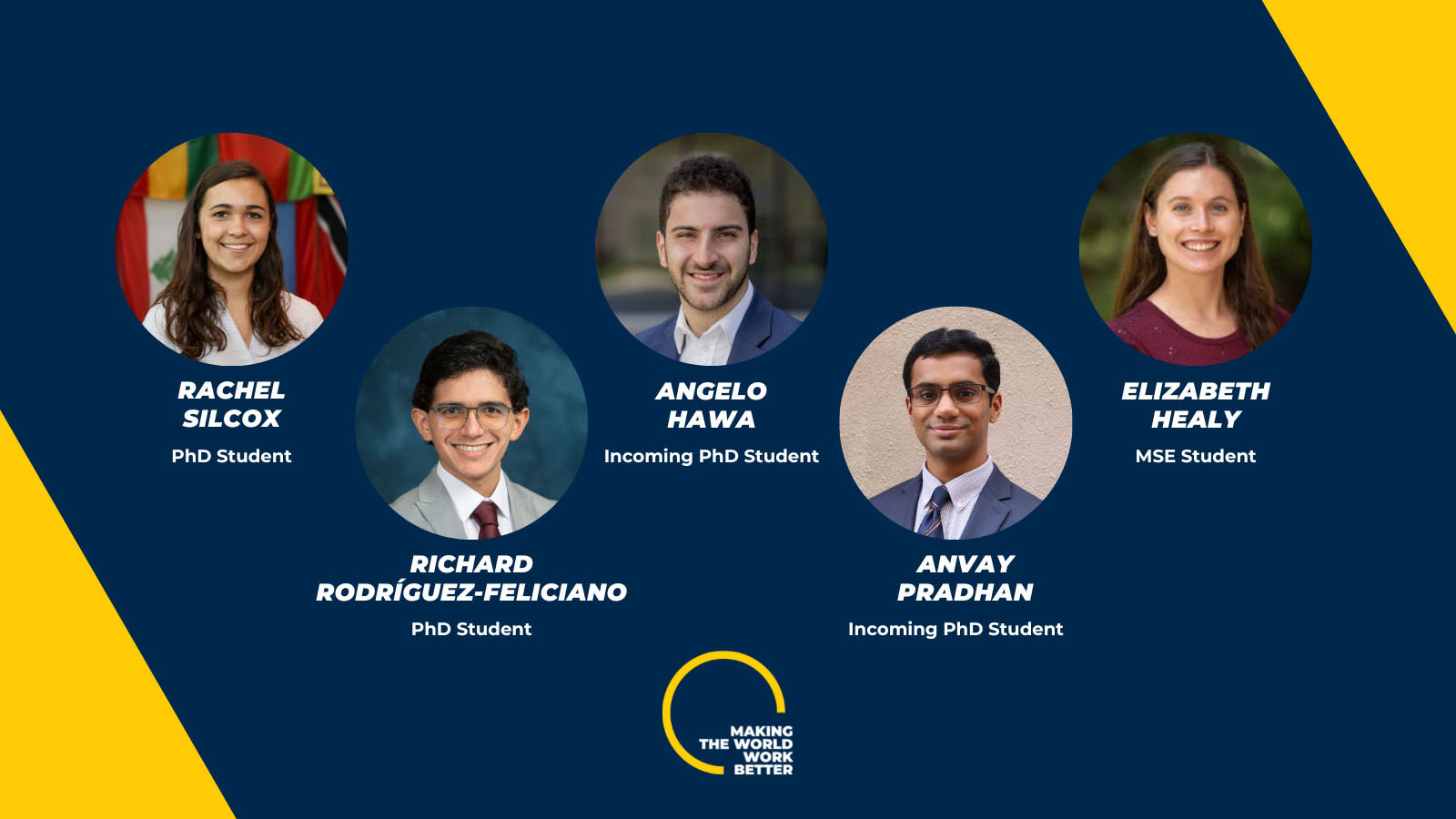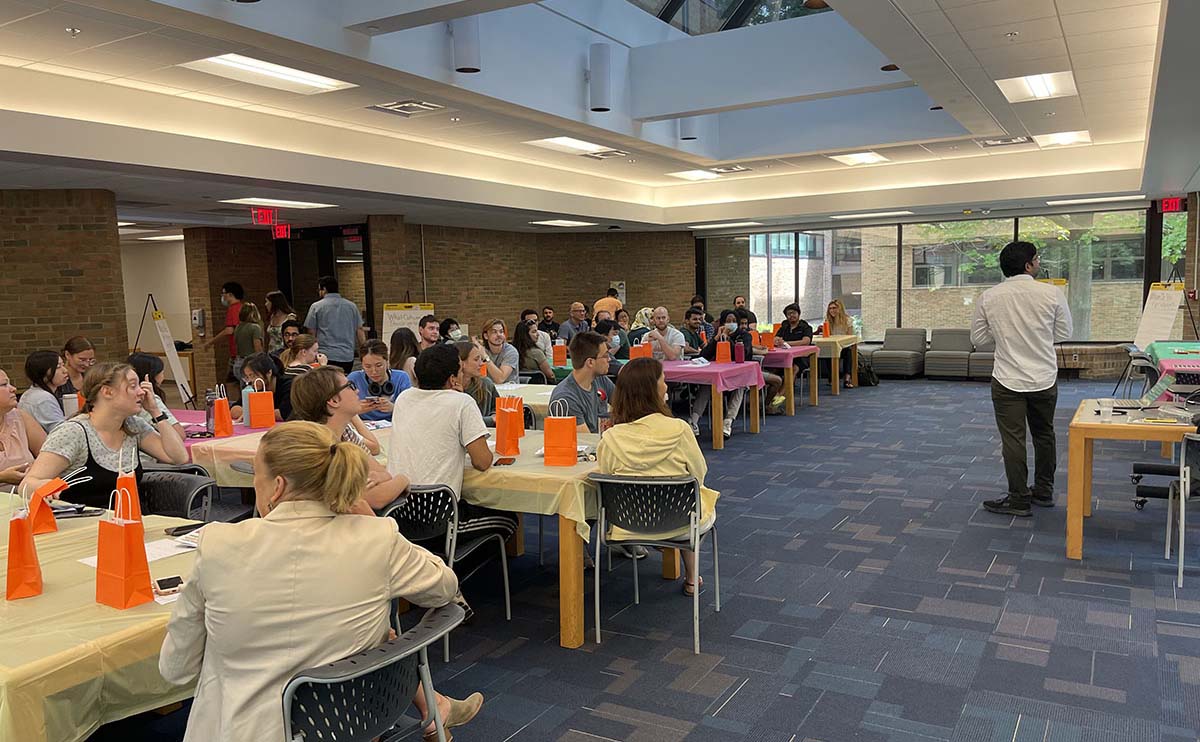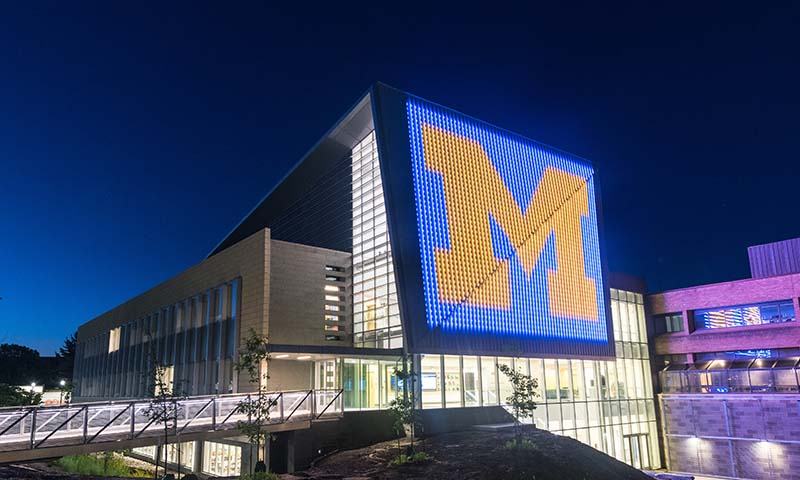


Five UM-ME graduate students have received Graduate Research Fellowships (GRF) from the National Science Foundation (NSF) in 2022. The NSF GRF Program’s goal in offering these fellowships is to increase the nation’s human capacity in science and engineering by fostering early-career graduate students, thereby bolstering a diverse and globally-engaged U.S. science and engineering workforce. With five recipients, the University of Michigan’s Department of Mechanical Engineering continues to lead nationally in NSFs awarded to mechanical engineering graduate students. The 2022 recipients are:
Rachel studies the effects of pH and nitrate concentration on nitrate reduction to ammonia to produce value-added products from waste water, while reducing the effects of nitrate pollution. Additionally, she is designing a carbon capture process from ocean water with the goal of intensifying the system's usage to make it more energy and cost efficient.
Richard’s research focuses on the development of methodologies to uncover and analyze the unique characteristics of modular structures with multiple stable equilibrium configurations and applications for vibration and sonic barriers, wave steering matter, and intelligent mobile robots.
Angelo works in deriving methods for obtaining data-based models of material properties, process parameters, and droplet characteristics using electrohydrodynamic jet printing.
Anvay recently worked to develop an origami-inspired metamaterial with tunable permeability with researchers at the California Institute of Technology. As a PhD student at UM, Anvay plans to work in soft robotics, specifically on creating robotic models that mimic snake anti-predator behaviors while being safely huntable by real animals.
Elizabeth’s research focuses on improving the safety and performance of lithium (Li) metal anodes by applying surface coatings that minimize Li dendrite formation to battery current collectors. Through the use of in-situ, ex-situ, and operando microscopy techniques, Elizabeth aims to characterize the Li deposit morphology with these surface coatings and ultimately determine ways to suppress dendrite formation.

